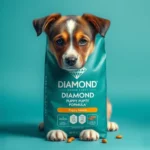
Introduction
Dog nutrition is a vital aspect of pet care, influencing overall health, energy levels, and longevity. Just like humans, dogs require a balanced diet rich in essential nutrients to thrive. As pet owners become increasingly interested in offering their furry companions a variety of foods, the question arises: can dogs eat rutabagas? This article delves into the safety, nutritional value, and potential risks associated with feeding rutabagas to dogs, empowering pet owners to make informed decisions about their dog’s diet.
Understanding Dog Nutrition
Basic Nutritional Needs for Dogs
Dogs, like all animals, have specific nutritional needs that must be met for optimal health. Their diet should include a balance of macronutrients:
- Proteins: Essential for growth, repair, and overall bodily functions.
- Fats: Important for energy and supporting cell structure.
- Carbohydrates: Provide a quick source of energy and aid in digestion.
In addition to macronutrients, dogs require various micronutrients—vitamins and minerals—that play crucial roles in metabolism, immune function, and bone health. Water is another critical component of canine nutrition, as it aids in digestion, nutrient absorption, and temperature regulation.
Common Human Foods and Their Impact on Dogs
While many human foods can be beneficial for dogs, others can pose serious health risks. Some human foods are perfectly safe to share with dogs, such as plain cooked meats, certain vegetables, and fruits like apples. However, foods like chocolate, onions, and grapes can be toxic. When introducing new foods, pet owners should follow these general guidelines:
- Introduce one new food at a time to monitor for any adverse reactions.
- Start with small portions to assess how the dog reacts.
- Avoid foods that are heavily seasoned, processed, or contain additives.
What Are Rutabagas?
Nutritional Profile of Rutabagas
Rutabagas, also known as swedes, are root vegetables that belong to the cruciferous family. They have a unique nutritional profile that can be beneficial for dogs:
- Fiber: 2.2 grams per 100 grams
- Vitamin C: 18 mg per 100 grams
- Vitamin B6: 0.1 mg per 100 grams
- Potassium: 305 mg per 100 grams
When compared to other common vegetables in dog diets, such as carrots and green beans, rutabagas stand out for their higher fiber content and significant amounts of vitamins and minerals.
Health Benefits of Rutabagas for Dogs
Including rutabagas in a dog’s diet can offer several health benefits, such as:
- Dietary Fiber: The fiber content aids in digestion and can help regulate bowel movements, reducing the risk of constipation.
- Vitamins: Rutabagas are rich in Vitamin C, which supports the immune system, and Vitamin B6, essential for protein metabolism.
- Antioxidants: These compounds help combat oxidative stress, promoting overall health and potentially reducing the risk of chronic diseases.
Can Dogs Eat Rutabagas?
Safety of Rutabagas for Dogs
So, can dogs eat rutabagas? Yes, they can! Rutabagas are considered safe for dogs when prepared correctly. However, it is essential to be aware of any potential risks:
- Allergic Reactions: While rare, some dogs may exhibit allergic reactions to rutabagas. Symptoms can include itching, swelling, or digestive distress.
- Digestive Issues: Introducing rutabagas too quickly or in large amounts can lead to gastrointestinal upset, such as gas or diarrhea.
Preparing Rutabagas for Dogs
To safely incorporate rutabagas into a dog’s diet, consider the following preparation methods:
- Boiled: Cooking rutabagas until soft makes them easier for dogs to digest.
- Mashed: Mashed rutabagas can be a tasty treat when mixed with other dog-friendly foods.
- Raw: While dogs can eat raw rutabagas, it’s best to start with small amounts to monitor for any digestive issues.
Recommended serving sizes will depend on the dog’s size and dietary needs. As a general guideline, small dogs can have 1-2 tablespoons, while larger breeds may enjoy up to ½ cup.
Potential Risks and Considerations
Gastrointestinal Issues
As with any new food, introducing rutabagas can lead to gastrointestinal distress in some dogs. Common symptoms of digestive issues include:
- Vomiting
- Diarrhea
- Flatulence
If these symptoms occur after feeding rutabagas, it’s crucial to stop offering them and consult a veterinarian. Monitoring your dog’s reaction is key when adding any new food to their diet.
Dietary Balance
Incorporating rutabagas into a dog’s diet should be done in moderation. While they offer health benefits, relying too heavily on any single food can lead to nutritional imbalances. It’s essential to maintain a varied diet that meets all of your dog’s nutritional needs.
Alternatives to Rutabagas
Other Safe Vegetables for Dogs
If you’re looking for alternatives to rutabagas, several other dog-friendly vegetables can be included in their diet:
- Carrots: Excellent for dental health and high in beta-carotene.
- Green Beans: Low in calories and high in fiber, making them a great snack.
- Sweet Potatoes: Rich in vitamins A and C, they are a nutritious option.
These vegetables provide various nutritional benefits and can be safely incorporated into your dog’s meals.
When to Consult a Veterinarian
If you’re uncertain about introducing rutabagas or any new food, consulting a veterinarian is always a wise decision. Signs that indicate a need for professional advice include:
- Persistent gastrointestinal upset
- Changes in behavior or energy levels
- Signs of allergies, such as excessive itching or swelling
Veterinarians can also help create personalized nutrition plans, especially for dogs with specific health issues or dietary restrictions.
Conclusion
In summary, while can dogs eat rutabagas is a valid question, the answer is a resounding yes—as long as they are prepared correctly and introduced in moderation. Rutabagas can be a healthy addition to your dog’s diet, offering valuable nutrients and fiber. However, always prioritize a balanced diet and consult your veterinarian when in doubt about new foods. By taking these precautions, you can ensure that your furry friend enjoys a nutritious and varied diet that supports their health and well-being.
References
- [Scientific studies and articles on dog nutrition and vegetable safety]
- [Veterinary resources on canine dietary needs and human food integration]









